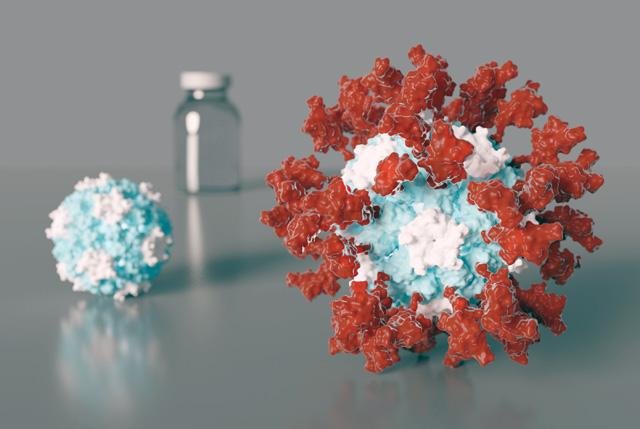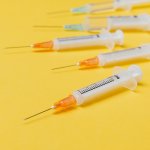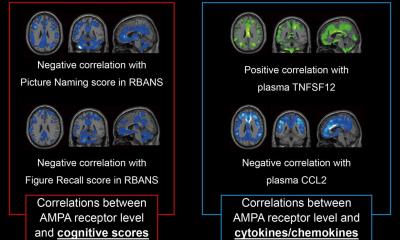
Source: Ian Haydon/ UW Medicine Institute for Protein Design
News • Preclinical data
COVID-19 vaccine candidate designed via computer
An innovative nanoparticle vaccine candidate for the pandemic coronavirus produces virus-neutralizing antibodies in mice at levels ten-times greater than is seen in people who have recovered from COVID-19 infections. Designed by scientists at the University of Washington School of Medicine in Seattle, the vaccine candidate has been transferred to two companies for clinical development.
Compared to vaccination with the soluble SARS-CoV-2 Spike protein, which is what many leading COVID-19 vaccine candidates are based on, the new nanoparticle vaccine produced ten times more neutralizing antibodies in mice, even at a six-fold lower vaccine dose. The data also show a strong B-cell response after immunization, which can be critical for immune memory and a durable vaccine effect. When administered to a single nonhuman primate, the nanoparticle vaccine produced neutralizing antibodies targeting multiple different sites on the Spike protein. Researchers say this may ensure protection against mutated strains of the virus, should they arise. The Spike protein is part of the coronavirus infectivity machinery.
The findings are published in Cell. The lead authors of this paper are Alexandra Walls, a research scientist in the laboratory of David Veesler, who is an associate professor of biochemistry at the UW School of Medicine; and Brooke Fiala, a research scientist in the laboratory of Neil King, who is an assistant professor of biochemistry at the UW School of Medicine.
Recommended article

News • Flaws in study design
Will COVID-19 vaccines save lives? Right now, we cannot tell
Vaccines are being hailed as the solution to the COVID-19 pandemic, but the vaccine trials currently underway are not designed to tell us if they will save lives, reports Peter Doshi, Associate Editor at The BMJ. Several COVID-19 vaccine trials are now in their most advanced (phase 3) stage, but what will it mean exactly when a vaccine is declared “effective”? Many may assume that successful…
The vaccine candidate was developed using structure-based vaccine design techniques invented at UW Medicine. It is a self-assembling protein nanoparticle that displays 60 copies of the SARS-CoV-2 Spike protein's receptor-binding domain in a highly immunogenic array. The molecular structure of the vaccine roughly mimics that of a virus, which may account for its enhanced ability to provoke an immune response.
"We hope that our nanoparticle platform may help fight this pandemic that is causing so much damage to our world," said King, inventor of the computational vaccine design technology at the Institute for Protein Design at UW Medicine. "The potency, stability, and manufacturability of this vaccine candidate differentiate it from many others under investigation."
Hundreds of candidate vaccines for COVID-19 are in development around the world. Many require large doses, complex manufacturing, and cold-chain shipping and storage. An ultrapotent vaccine that is safe, effective at low doses, simple to produce and stable outside of a freezer could enable vaccination against COVID-19 on a global scale.
"I am delighted that our studies of antibody responses to coronaviruses led to the design of this promising vaccine candidate," said Veesler, who spearheaded the concept of a multivalent receptor-binding domain-based vaccine.
Source: UW Medicine Institute for Protein Design
07.11.2020











